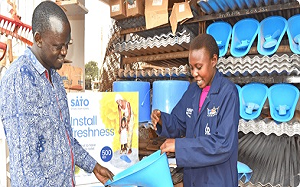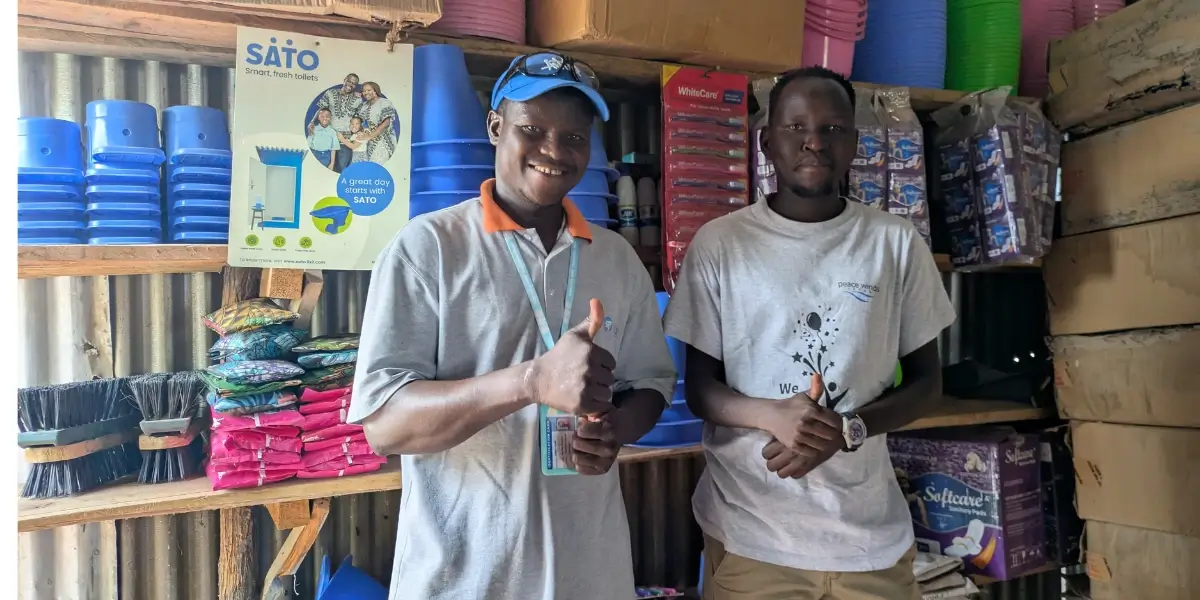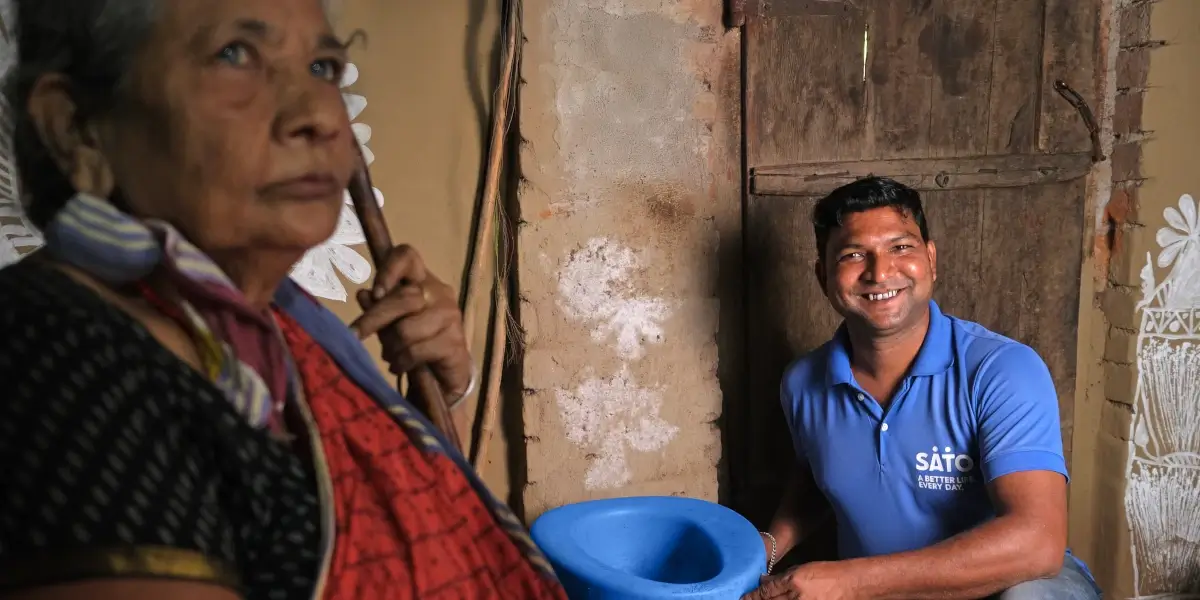
Introducing the Partnership for Better Living

Cooperative agreement awarded by USAID to LIXIL Group and SATO.
In 2022, our parent organisation, LIXIL Group, launched the Partnership for Better Living – a cooperative agreement with USAID to expand the market for affordable and appropriate sanitation solutions, improve the availability of its products, and support the reliability of supply chains in countries of shared interest. With approximately $10 million in grant funding from USAID, the Partnership seeks to improve sustainable access to basic sanitation for more than two million people by 2026. This will contribute to LIXIL’s overall goal of reaching 100 million people with basic sanitation and hygiene solutions.
SATO will bring its award-winning innovation, research, and development to test new, locally relevant products. We will also work to strengthen supply networks by training masons and plumbers in each market and by creating business opportunities for women entrepreneurs as well as small and medium-sized enterprises. This will help create new ‘sanitation economies’ that increase awareness of the benefits of improved sanitation and up-skill local workers, effectively empowering countries to continuously level-up their own sanitation. LIXIL will also co-invest funding and resources inkind, leveraging the USAID grant to advance the Partnership for Better Living’s objectives
and accelerate progress toward the global SDG goals.
Discussing the Partnership, SATO’s Leader Erin McCusker said:
“Through this new Partnership, we can work collaboratively to systematically tackle the barriers to improved sanitation and hygiene for everyone, reaching millions of people across Africa and Asia. Our work underscores LIXIL’s purpose and will aim to test and demonstrate replicable approaches to sanitation supply chains for others to accelerate global progress.”
Jeff Goldberg, Deputy Assistant Administrator and interim Global Water Coordinator at USAID, added:
“The partnership with LIXIL and SATO is a major milestone for USAID’s work to bring innovative, new approaches to these challenges and accelerate the development of sustainable sanitation markets.”
As it looks to scale-up, the Partnership is seeking like-minded partners – from manufacturers and distributors to masons and research agencies. If you would like to find out more about getting involved in the Partnership, please get in touch here.
WANT TO STAY UP TO DATE?
Subscribe to our newsletter to stay on top of the latest news, views, and stories from on the ground.
The easiest way to do this is to sign-up for our LinkedIn newsletter here. We'll then send you a bi-monthly letter from our Leader, Erin McCusker.

Similar articles
While global in scope our stories are local at heart.



 Copyright © LIXIL 2026
Copyright © LIXIL 2026